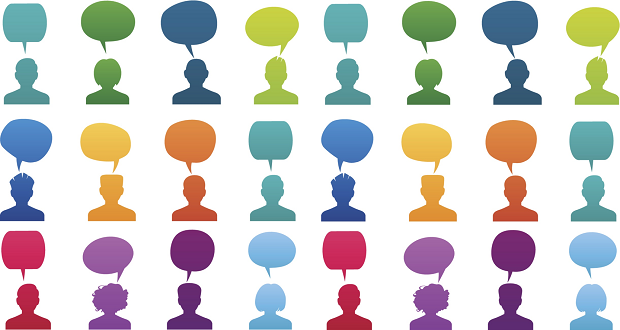
[Disclaimer: Nothing in this blog post reflects the positions of the federal government, Department of Treasury or the IRS. The opinions in this piece are solely the views of the writer in his personal capacity as an American Indian.]
In 1991, when I decided to move to Washington, DC, with my future wife. I left the safe confines of my Tribal Community of southeastern North Carolina. It was my first experience with people who did not look like me, talk like me, act like me or think like me. When it came to finding other people in my in-group in the nation’s Capital, it was slim pickings since few Native folks reside in the Washington, DC, area.
Even though I had moved out of Indian Country, it did not take long to find people with Indigenous blood in their veins. I discovered American Indian public servants at other federal agencies as well as pockets of Native activism outside of the professional environment.
Despite these connections, the one place I never felt any bond with my personal identity was the federal agency I was working in. Most of the time I was the only American Indian on my team, staff or business unit.
Here are some of the painful lessons I have learned over my federal government career being the only American Indian in the room.
Pressure to Represent
I am frequently asked to speak for American Indians at various events, in an advisory capacity or as a technical consultant. While this type of attention can be flattering, it is disconcerting that if I make a mistake in this role that it may impact the future of others like me.
Oftentimes, I am expected to know every little fact and history tidbit on each square inch of Indian country that is the equivalent to the size of the New England states. Sorry, but I do not know in detail the culture and history of the 573 federally recognized tribes in the country. It has taken me a lifetime just to master my own Tribal identity.
Ironically, my supervisors know where to find me in the room when they want my perspective on American Indian culture, yet they were nowhere to be found when I raise the concerns of American Indian communities.
My supervisors know where to find me in the room when they want my perspective on American Indian culture, yet they were nowhere to be found when I raise the concerns of American Indian communities. Share on XDon’t Depend on Assistance from Other People of Color In the Room
To my surprise, allies from other subordinated groups are in scarce supply. You think this would be exactly the opposite in that other underrepresented groups in the workplace would understand that American Indian problems are everyone’s problem. Why is solidarity so hard to find? In my experience, other subordinated groups are disengaged and skeptical to work on the challenges of other marginalized employees since they fear a limited pool of resources and energy will be diluted if other voices are added to the mix.
Privilege
I do not relish the benefits of privilege enjoyed by employees in dominant groups (e.g. white employees). This lack of privilege is on display when I seek information or feedback on American Indian issues and in turn, get labeled as needy or incompetent. On occasions when I make a complaint or seek justice about American Indian issues, my group membership is often called into question.
What do people who dominate the room say to the one American Indian in the room? “We are not going to give up our power and privilege to make you feel included. For to relinquish this power, we would have to admit that we are ready to recognize and embrace you.”
One way they wield this power is to rally fellow like-minded people to join the effort to collectively exclude and maintain their shared power. This is easy to do since most of their members come from places of privilege and power in the first place. Sometimes when they are desperate, they will defend their privilege from a nuclear arsenal of other sources such as the media, history, religion, education and government. These are easy repositories of resources for them since they have exclusive access to these institutions anyway.
Walking in Two Worlds
The biggest challenge is negotiating two distinct cultures while being in the room. Federal government workplace culture is heavily dependent on individual achievement and competition. I was raised in a Native culture with emphasis on group success and cooperation. Individual progress was measured on how well the group fared. One person’s good fortune should cause everyone’s boats to rise. No one was left behind because the group’s welfare was based on cumulative personal achievement. If a Tribal member is hurting, then the entire Tribe is hurting.
The biggest challenge is negotiating two distinct cultures. Federal govt workplace culture is heavily dependent on individual achievement and competition. I was raised in a Native culture with emphasis on group success and… Share on XThis is not the case in the workplace. It is everyone for themselves.
Negative Micro-Messages
As an American Indian federal government employee, I have received my fair share of negative messages while in the room such as:
“When I see you, I don’t view you as an American Indian.”
Message: Your racial experience is not valid here because I am colorblind to your existence.
“You are so articulate for an American Indian.”
Message: It is unusual for someone like you to be intelligent, so I am basing your intelligence level on the rest of your racial group.
“You do not look like an American Indian. Prove it.”
Message: We will define who you are in this room.
“If you work hard, you can succeed like everyone else.”
Message: If you don’t succeed, you have only yourself to blame. I must work twice as hard as anybody else in the room.
Being the “only one” in the room leads to racial fatigue syndrome. A term coined by Dr. William Smith from the University of Utah, it refers to the cumulative effect of micro-aggressions, implicit humiliations, subtle slights imposed upon the “only” in the room by the dominant group.
I often dream as to what it would feel like if American Indians controlled the room. Then it dawned on me that we were the architects of the original room. We welcomed a group of strangers with the right hand of friendship to our country, only to have to learn the skills of coexistence from them as we struggle to stay in the very room that we created.
I often dream as to what it would feel like if American Indians controlled the room. Then it dawned on me that we were the architects of the original room. We welcomed a group of strangers with the right hand of friendship to our… Share on X

















